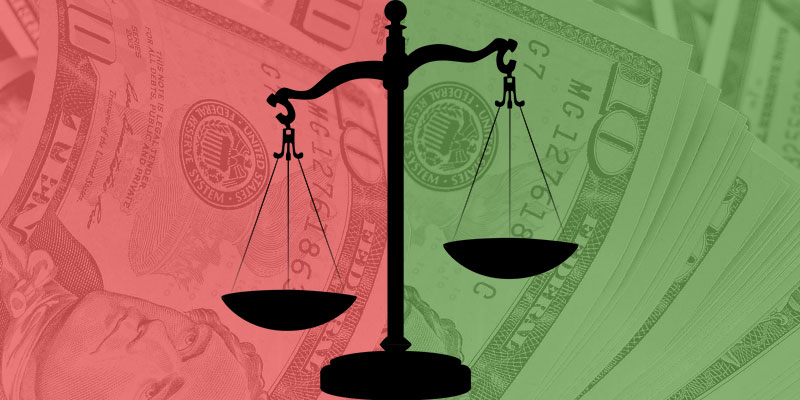Local governments establish laws and codes to help structure our social interactions and penalize the rule breakers. The use of fines as a type of taxation should offend us all.
The Institute for Justice (IJ) has long been concerned with abuse of government police power. IJ has led in research and litigation on civil asset forfeiture, the process through which people can lose their money and property without facing any criminal charges. IJ extended this analysis to taxation through citation in a 2020 report “Municipal Fines and Fees.”
One inspiration for this report was a U.S. Department of Justice (DoJ) report on policing practices in Ferguson, Missouri. In August 2014, Michael Brown was killed by a Ferguson police officer, sparking extended protests. DoJ found the shooting justified but reported that Ferguson’s “emphasis on revenue generation” led many officers “to see some residents … less as constituents to be protected than as potential offenders and sources of revenue.” Such practices “undermine community trust, especially among African Americans” and consequently “law enforcement is seen as illegitimate.”
In America government serves the people. We agree to speed limits, municipal codes, and other laws – and tickets and fines for rule breakers, including sometimes ourselves – because they make us better off. Travel is safer and faster when everyone obeys the rules of the road.
In addition to agreeing to government rules, we insist on procedures to fairly judge those accused of breaking the rules. History shows that due process is necessary to prevent the abuse of authority. Perfect justice is impossible and extremely costly to approach. We may choose less perfect and less expensive justice for speeding than for serious criminal charges, but the rights of the accused still must be protected.
Issuing enough citations to generate revenue overwhelms our court resources, which also happens in criminal cases. Authorities must induce most criminal defendants to plead guilty and motorists to not challenge questionable tickets.
This is accomplished by increasing the cost of defending oneself. In criminal cases, prosecutors engage in charge “stacking,” adding charges simply to induce a guilty plea, as illustrated by actress Lori Loughlin’s college admissions bribery case. After refusing to plead guilty, prosecutors charged Ms. Loughlin with additional counts of bribery. She faced 40 years in prison before pleading guilty and receiving a two-month sentence.
For tickets and citations, courts often impose fees for going to court or for making a police officer testify. In municipal courts, the judge might be appointed by the mayor and willing to make biased rulings.
“Municipal Fines and Fees” examines 52 elements of state law affecting cities’ ability to profit from fines. Many of the factors involve municipal courts, which must accommodate a city engaging in taxation by citation by upholding dubious tickets. The 52 factors are arranged into seven groups and states are scored on each factor, resulting in a ranking of all fifty states. Georgia exhibits the greatest potential for “taxation by citation,” followed by West Virginia. North Carolina and Florida offer the best protection against such abuse. Alabama ranks in the middle of the pack.
Policing for revenue leads predictably to injustice. One element of injustice is denying those wrongfully accused of violating the rules of proper social conduct their day in court. Beyond this, revenue is mostly readily generated when people do not contest fines. This means targeting those unable to afford to take time off work or hire a lawyer to defend themselves; the poor and minorities bear much of the burden of taxation by citation, as they do with civil asset forfeiture.
One disappointing thing I learned researching this column is the role of consultants in encouraging cities to view fines as a revenue source. The undoubtedly well-educated consultants seem oblivious to the moral dimension of accusing a citizen of violating the rules supporting our society. We cannot hope to maintain constitutional government even the well-educated remain ignorant of the proper relation between citizens and government.
Daniel Sutter is the Charles G. Koch Professor of Economics with the Manuel H. Johnson Center for Political Economy at Troy University and host of Econversations on TrojanVision. The opinions expressed in this column are the author’s and do not necessarily reflect the views of Troy University.













